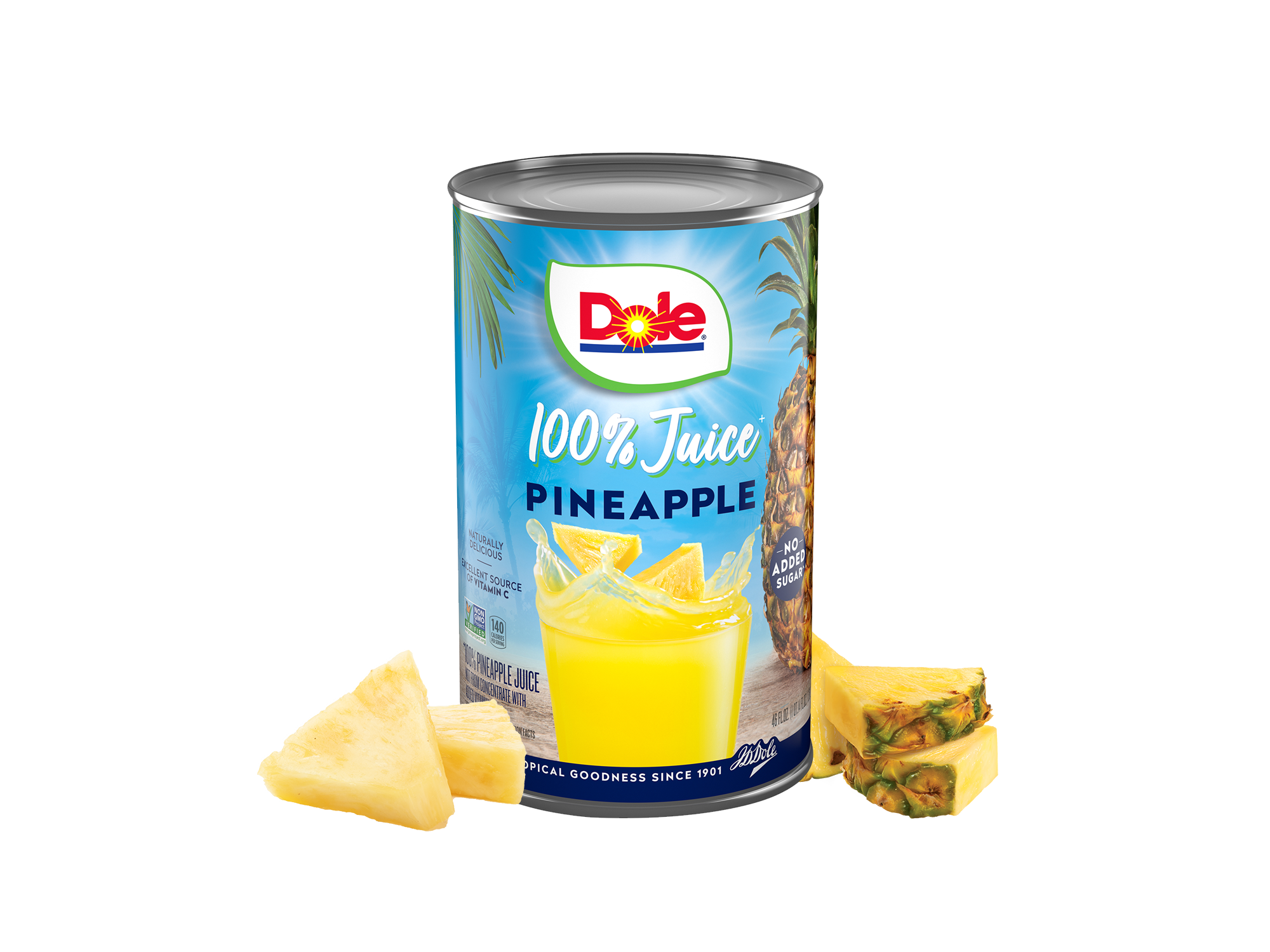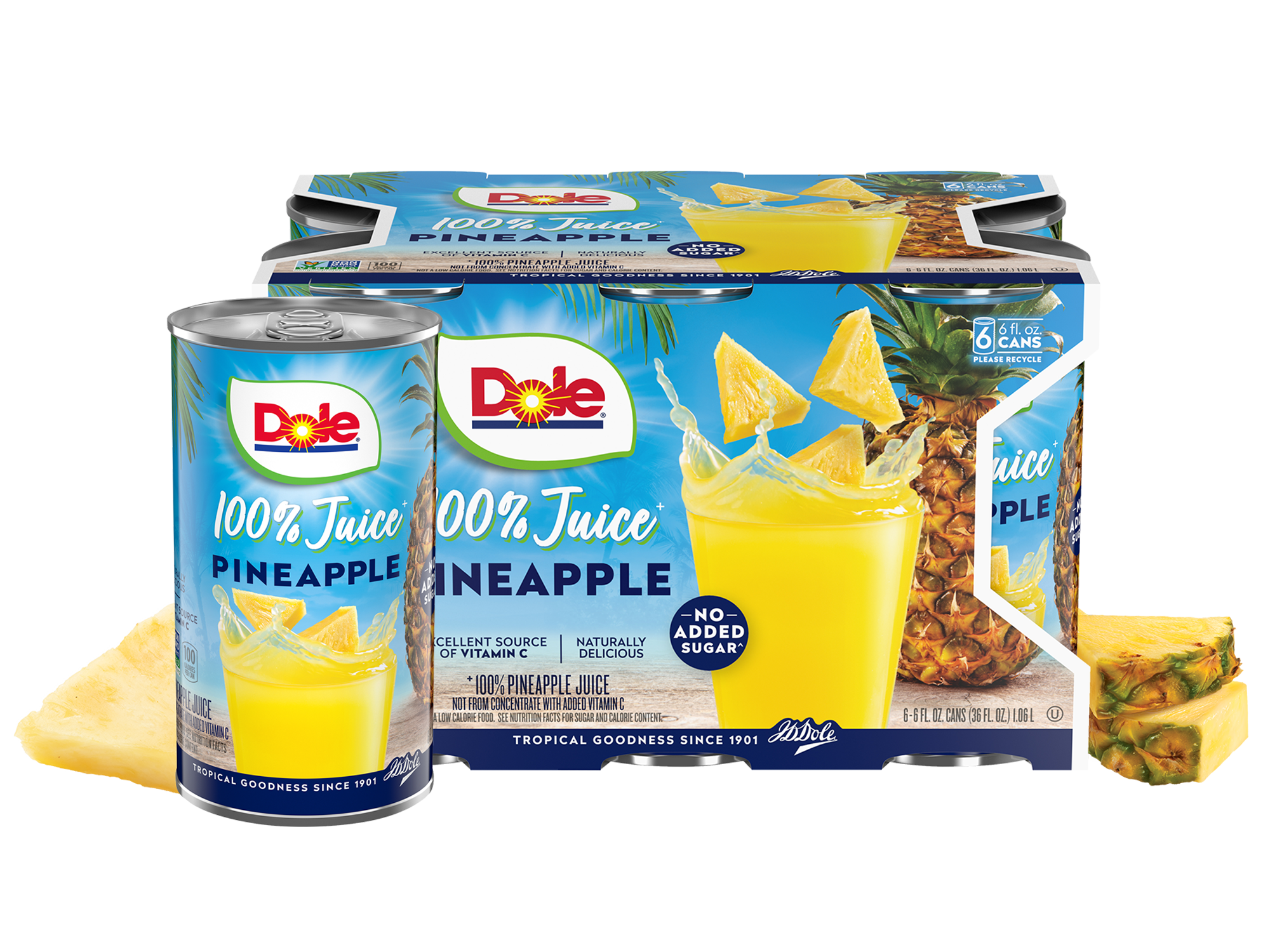Pineapple juice contains bromelain, an enzyme known to reduce inflammation and swelling. Its efficacy, however, varies among individuals and conditions.
Pineapple juice is not just a tropical delight; it holds a reputation for having anti-inflammatory properties due to bromelain, an enzyme found in this succulent fruit. This particular enzyme has been studied for its potential to ease swelling, aid digestion, and even assist in muscular recovery post-exercise.
While its effectiveness can depend on various factors, including the extent of swelling and individual response, many health enthusiasts turn to pineapple juice as a natural remedy. By incorporating this juice into a balanced diet, it’s possible to harness the therapeutic qualities of bromelain, keeping in mind that medical consultation is advisable for persistent or severe conditions. Enjoying pineapple juice could contribute to an overall anti-inflammatory lifestyle, potentially offering a refreshing way to soothe minor aches and reduce swelling.
Pineapple Juice: A Tropical Elixir?
Pineapple juice bursts with vibrant flavors and a bounty of health benefits. Its sweetness and tang tease the taste buds, promising more than just a refreshment. In the world of health remedies, pineapple juice is a shining star with its reputed power to fight swelling. The key lies in bromelain, an enzyme unique to pineapple.
Origins And Popularity
Steeped in history, pineapple first graced the soils of South America. Adventurers took this exotic fruit to distant lands. As pineapples voyaged across seas, so did their fame. Today, pineapple juice basks in global adoration as a delicious and healthful drink.
Nutritional Profile Insight
Each sip of pineapple juice carries vital nutrients. It’s low in fat and rich in vitamins C and B6. Here is a peek into its nutritional essence:
| Nutrient | Amount |
|---|---|
| Vitamin C | 79 mg |
| Manganese | 1.5 mg |
| Bromelain | Varies |
| Fiber | 0.5 g |
| Calories | 132 |
Vitamin C and manganese are stars for immunity and bone health. Bromelain steals the spotlight for anti-swelling properties. The numbers tell a tale of pineapple juice as a formidable ally in a balanced diet.

Swelling: Symptoms And Causes
The body sometimes responds to injury or infection with swelling. This reaction can cause parts of the body to enlarge. It often comes with redness, heat, pain, or function loss.
Understanding Inflammation
Our bodies use inflammation to fight off harmful stimuli. It’s a defense mechanism. The affected area might look bigger and feel warmer or tender to the touch.
Common Contributors To Swelling
- Injury or trauma
- Infections
- Allergic reactions
- Chronic conditions, like arthritis
Keep these triggers in mind and know that pineapple juice might help. It contains bromelain, an enzyme that may reduce swelling. Keep reading to discover why pineapple juice could be a sweet solution to a swollen situation!
Bromelain: The Anti-inflammatory Component
Bromelain stands out as a powerful enzyme. It comes from pineapples. It has anti-inflammatory powers. People often turn to pineapple juice for relief. Why? Because of this enzyme.
Discovery Of Bromelain
Bromelain was found back in 1891. Scientists dug into pineapple stems and found it. It was not just in the stems. The juice and flesh also had Bromelain.
Scientific Studies On Bromelain
Lots of research sheds light on Bromelain’s benefits. Here are the highlights:
- Reducing Inflammation: It fights inflammation. It helps with swelling.
- Promoting Healing: It can speed up recovery from injuries.
- Reducing Pain: It may ease pain. It helps with arthritis and muscle pain.
Scientific studies support these findings. They show positive results. Bromelain’s anti-inflammatory effects get recognized more and more. People see it as a natural remedy. It helps with swelling, and it comes with fewer side effects than meds.

Consuming Pineapple Juice For Swelling
Nature might hold the key to reducing unwanted swelling. Pineapple juice is gaining attention for its potential to soothe inflammation. Let’s dive into how this sweet tropical drink can help.
Recommended Dosage
Integrating pineapple juice into your diet is easy. Consistency is key.
- Adults can enjoy 4 to 8 ounces daily.
- Increase intake slowly to monitor body reactions.
- Include it with meals for better absorption.
Note: Always consult with a healthcare provider before beginning any new dietary routine.
Potential Side Effects
Though natural, pineapple juice may not suit everyone.
| Side Effect | Details |
|---|---|
| Allergies | Some may experience symptoms. |
| Diarrhea | High amounts of vitamin C might upset the stomach. |
| Drug Interactions | Can affect how some medications work. |
Monitoring your body’s response is vital. Any adverse reactions should prompt a visit to your doctor.
Comparing Pineapple Juice To Other Remedies
Pineapple juice is gaining popularity as a natural remedy for swelling and inflammation. This tasty tropical drink contains bromelain, an enzyme believed to have anti-inflammatory properties. When dealing with swelling, it’s important to choose the most effective and safe options. Let’s explore how pineapple juice measures up against other remedies.
Traditional Anti-inflammatory Foods
Nature provides many foods that fight inflammation. People eat these foods to stay healthy. Here are some common ones:
- Turmeric – contains curcumin, which reduces inflammation.
- Ginger – a spicy root that can calm swelling.
- Berries – have antioxidants that help heal the body.
- Leafy Greens – full of vitamins, they boost health.
- Omega-3 Foods – like salmon, which makes the body strong.
Pharmacological Alternatives
Doctors sometimes give medicine when food is not enough. These medicines are very powerful.
| Type | How It Works |
|---|---|
| NSAIDs | Stop chemicals that cause swelling. |
| Corticosteroids | Lowers immune response to reduce swelling. |
| Analgesics | Relieve pain but don’t always reduce swelling. |
Pineapple juice might be milder than these medicines. It can be a good choice if you want to try a natural way first.
Real-life Stories: Users’ Experiences
People everywhere are turning to natural remedies for health issues. Pineapple juice for swelling brings forward many conversations. Let’s dive into real-life stories from those who have tried it.
Success Cases
Countless individuals swear by pineapple juice’s benefits. They report reduced swelling after injuries, surgeries, or even from common conditions like arthritis.
- Jane Doe: “After my knee surgery, pineapple juice was my go-to. Helped with swelling and tasted great!”
- John Smith: “My aunt suggested pineapple juice for my swollen ankle. It took a week, but I noticed a difference!”
- Emily Johnson: “Dealing with swollen wrists from typing, pineapple juice twice a day made a real impact.”
Experts’ Take
Health experts highlight the enzyme bromelain found in pineapple. This enzyme is known for anti-inflammatory properties.
| Expert | Qualifications | Insights |
|---|---|---|
| Dr. A. Smith | Nutritionist, PhD | “Bromelain in pineapple juice can aid with swelling and promote healing.” |
| Dr. B. Jones | Dietician | “I recommend it as part of an anti-inflammatory diet. It’s a tasty choice for my clients.” |
| Dr. C. Williams | Sports Therapist | “For athletes with minor swelling, pineapple juice is a natural option I suggest often.” |
Final Verdict: Myth Or Fact?
Final Verdict: Myth or Fact?
Final Verdict: Myth or Fact? – the truth about pineapple juice and its effects on swelling may come as a surprise. This refreshing tropical drink has been under the spotlight for its purported health benefits. So, let’s dive into what the evidence actually says about this juicy query.
Summarizing the Evidence
Summarizing The Evidence
Is pineapple juice a swelling solution? Scientific studies shed light on this topic. Key ingredient bromelain takes center stage. Found in pineapple juice, bromelain is known for its anti-inflammatory properties. Research suggests that this enzyme can indeed help reduce swelling, particularly after surgery or injury.
- Studies support pineapple juice’s effectiveness for post-operative swelling.
- Bromelain’s properties might speed up recovery time.
- Regular consumption required for benefits (not an instant cure).
Best Practices for Using Pineapple Juice
Best Practices For Using Pineapple Juice
Seeking the anti-swelling benefits of pineapple juice? Here’s how to use it wisely:
- Choose pure pineapple juice without added sugars.
- Drink juice in moderation – too much can lead to stomach upset.
- Consult with a healthcare provider before using as a treatment.
For optimal results, include pineapple juice as part of a balanced diet. Pair it with foods rich in anti-inflammatory compounds, like omega-3s and antioxidants, to enhance its swelling-reducing effects.

Frequently Asked Questions On Does Pineapple Juice Help With Swelling
Is Pineapple Juice Effective For Reducing Inflammation?
Pineapple juice contains bromelain, an enzyme known for its anti-inflammatory properties. Studies suggest that it may help reduce swelling and inflammation, particularly after surgery or injury.
Can Bromelain In Pineapples Alleviate Arthritis Symptoms?
Bromelain, present in pineapple juice, has shown potential in easing arthritis-related joint pain and inflammation. However, individuals should consult healthcare professionals before using it as a treatment.
How Much Pineapple Juice Should I Consume For Swelling?
There is no established dosage for pineapple juice to reduce swelling. However, moderation is key, typically around 4-8 ounces daily, as part of a balanced diet, to avoid excessive sugar intake.
Does Pineapple Juice Offer Swell Reduction Post-injury?
Pineapple juice can contribute to swelling reduction post-injury due to bromelain’s anti-inflammatory effects. For the best results, it should be consumed in conjunction with a doctor’s advice and treatment.
Conclusion
Pineapple juice is more than a tropical delight. It can be a potent ally against swelling, thanks to bromelain. This enzyme attacks inflammation effectively and safely for many people. Before considering it as a remedy, always consult with a healthcare professional.
Embrace the sweet potential of pineapple juice for your wellness journey.

